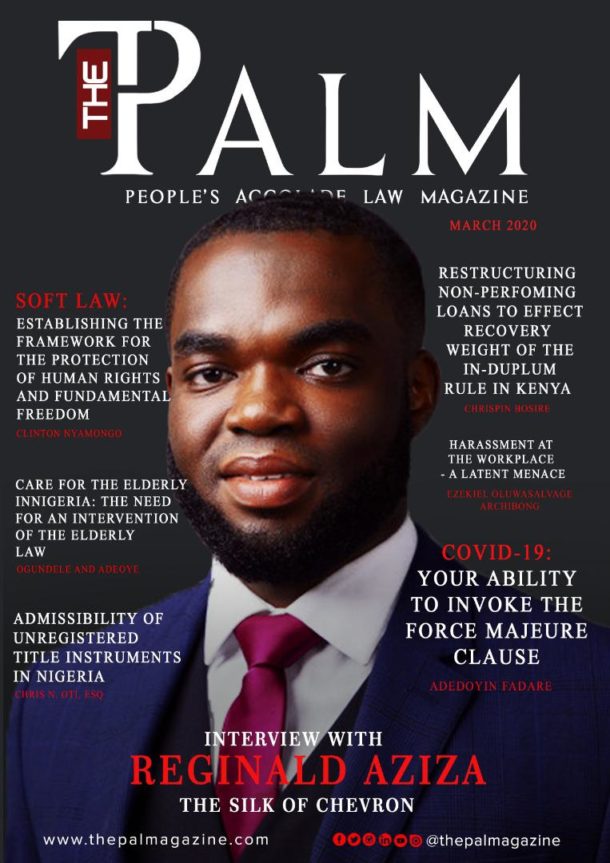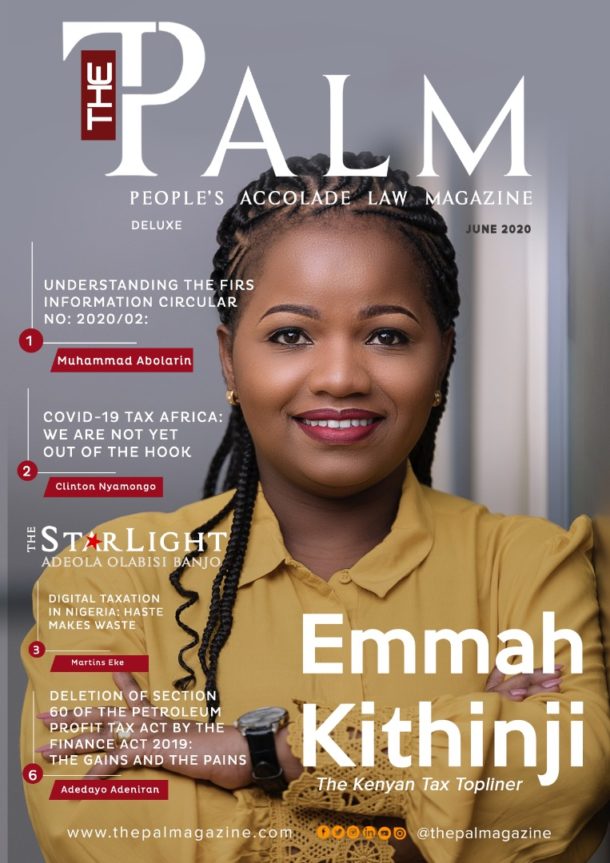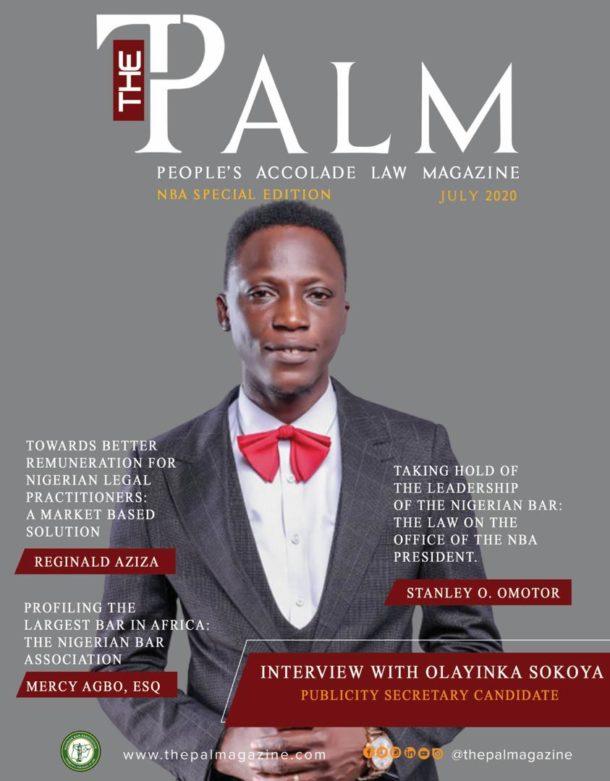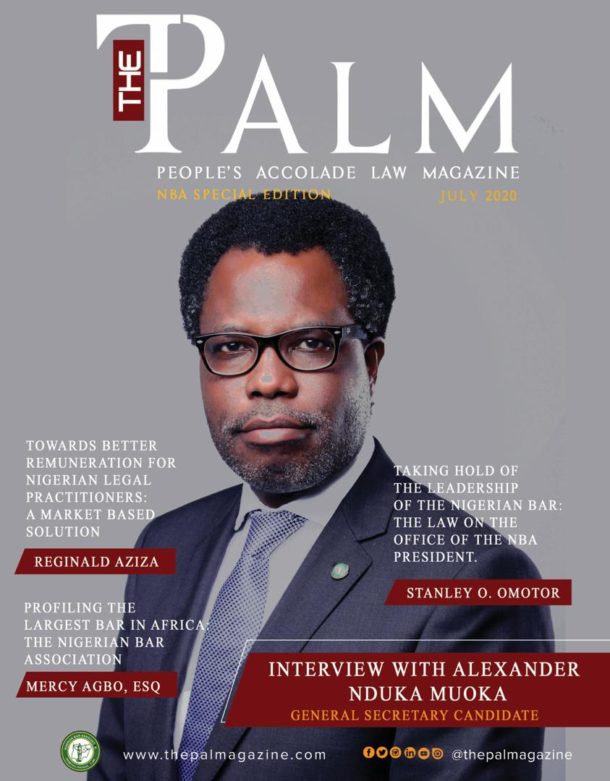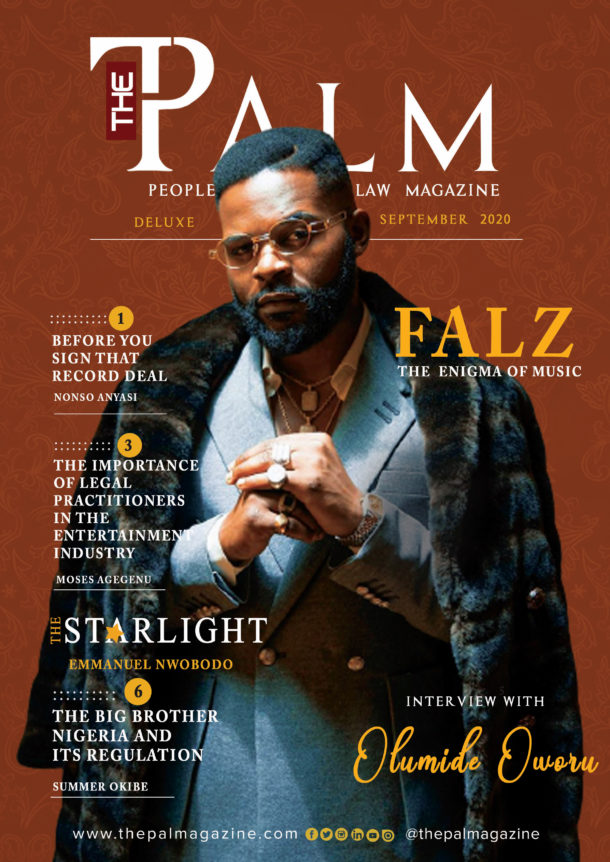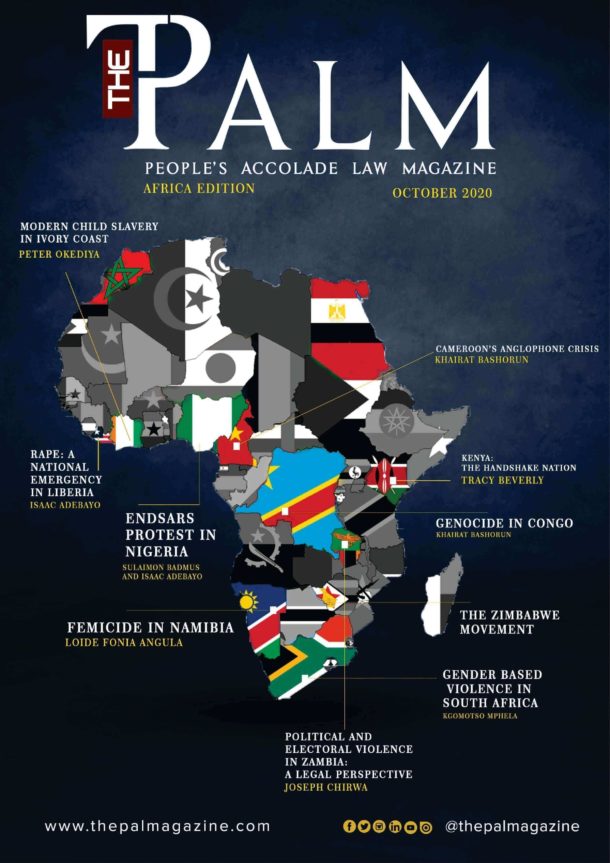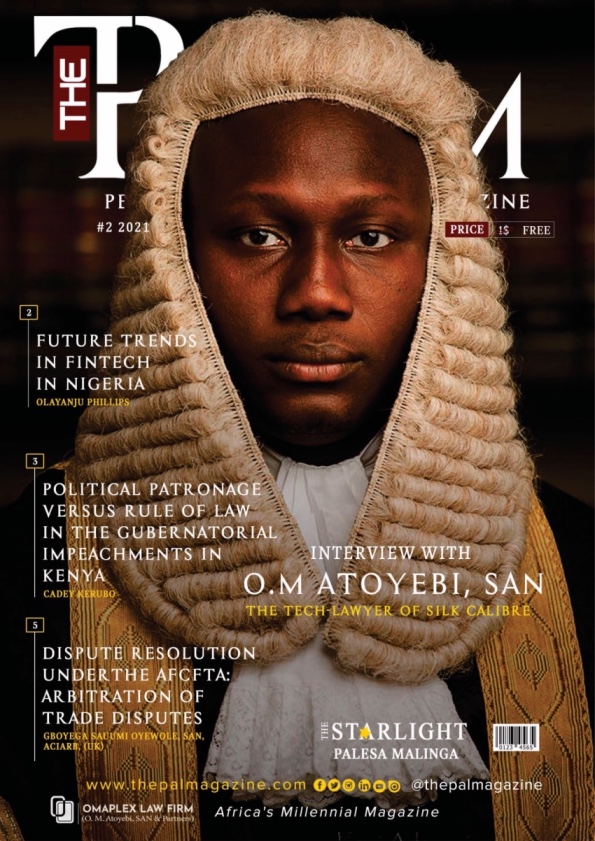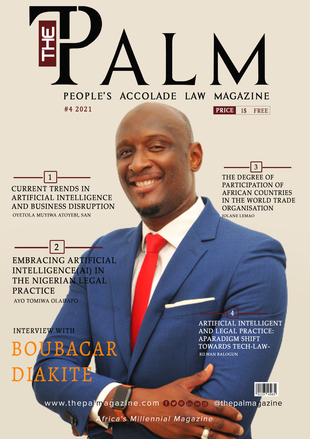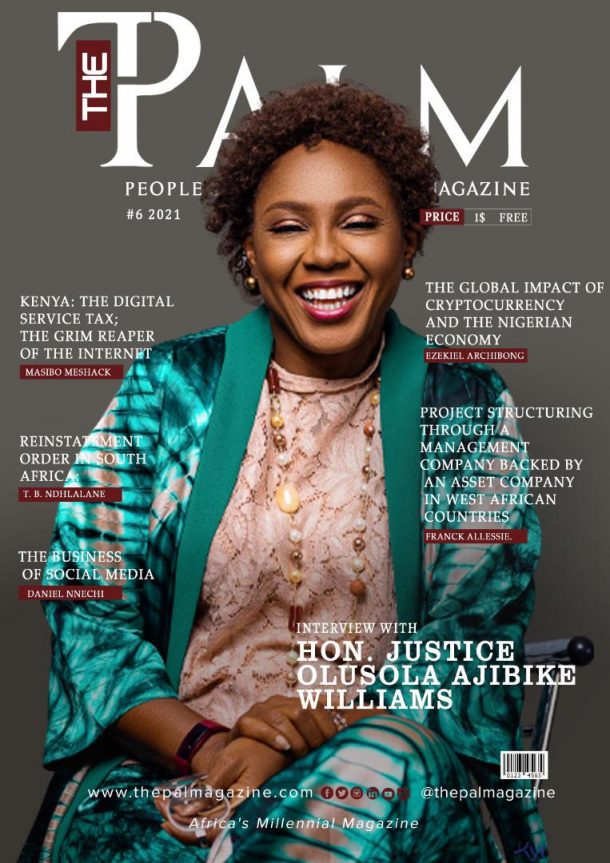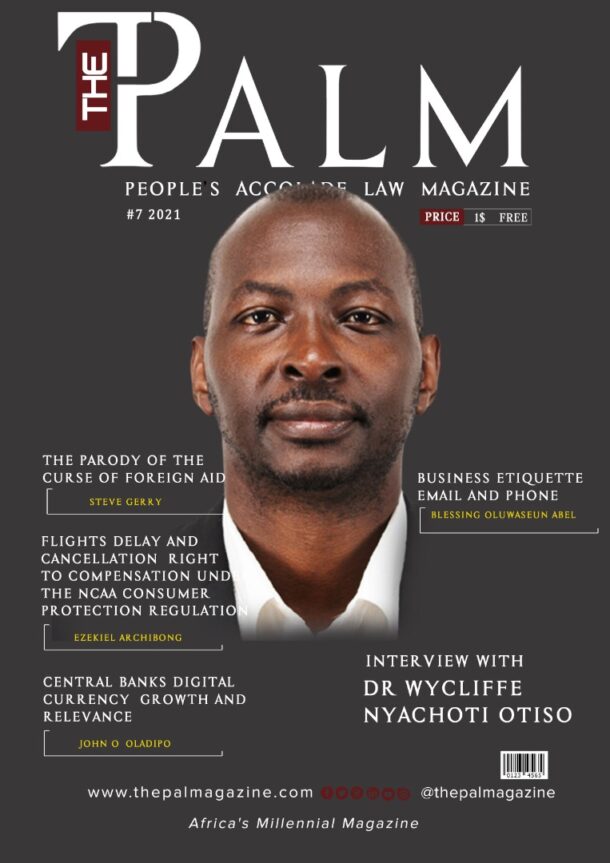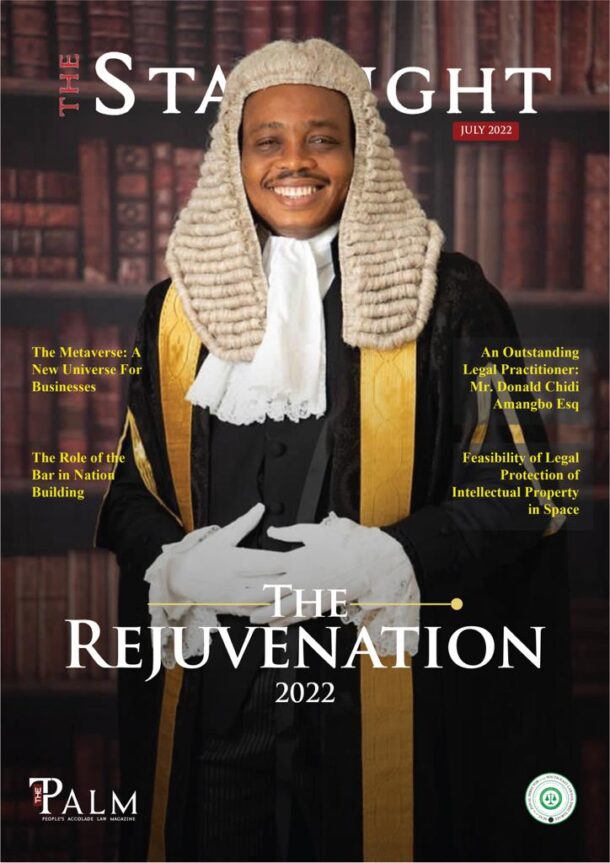The Necessity For Proactive Pro Bono Services In Nigeria
Introduction
“Justice”, as we know it[1], is under serious threat in Nigeria and if we do not act fast, it might be too late to mend the consequences.
The gap between the rich and the poor keeps expanding.[2] The financial capacity of a poor man to retain an attorney for mandatory legal representation has decreased drastically.
This writer simply submits that this is a big threat to justice. As rightly said by Reginald Heber Smith;
“Without equal access to the law, the system not only robs the poor of their only protection, but it places in the hands of their oppressors the most powerful and ruthless weapon ever created”[3]
With the high cost of securing the services of a legal practitioner and the resultant cost of litigation, poor people are helplessly and haplessly exposed to unquantifiable injustice without any available legal therapy.
What is Pro Bono About?
“Pro Bono Publico ” (shortened to “Pro Bono”) as it is properly called is a Latin phrase meaning “for the public good”. It is generally referred to as Free Legal Representation. It simply means representing a client or set of clients without charging professional fees, whether in court or any legal representation out of court.
Furthermore, in line with the tenet of democracy and the Rule of Law – equality before the law – the increasing gap between the rich and the poor triggered the growth of representing indigent clients freely. The idea that the law should be equally applied to all persons regardless of their ability to pay has its origins in 15th Century England. Conversely, until the 19th Century, this concept was only applied to specific cases[4].
Fast forward to modern practice, pro bono services have become an important part of the legal profession. It is adopted within a very large spectrum of criminal cases but rarely in civil cases. This might be accounted by the massive rate of indigent accused persons kept in detention and stuck for lack of legal Counsel across the country.
For the records, the lawyer’s duty to provide legal representation to those who cannot afford it is well codified in the American Bar Association’s Model Rules of Professional Responsibility (Rule 6.1). Curiously, there is no such rule enshrined in the Rules of Professional Conducts for Legal Practitioners in Nigeria.

Pro Bono Services in Nigeria
Lawyers have been providing pro bono legal services for a very long time. However, the growth of an organized method to pro bono servicing by law firms is relatively a recent occurrence. The system of free legal representation as practiced in developed countries has now been adopted widely in developing countries like Nigeria[5].
There are as many as 335 Non-governmental Organizations (NGOs) registered in Nigeria with the main purpose of supporting different types of cases with indigent litigants[6]. Unfortunately, majority of them, despite their lofty ambitions, only achieve this pro bono objective on paper, i.e. merely in principle, a chasm from reality.
Few of these Organizations are:
- BAOBAB for Women’s Human Rights;
- The Justice Research Institute Ltd. Gte. (JRI)[7];
- Access to Justice (AJ)[8];
- Catholic Institute for Development, Justice and Peace.
These and many more are currently registered in Nigeria to carry out Pro Bono Services and other related activities[9].
The ineffectiveness of many of these Non-Governmental Organizations is an indication of the lingering threat against an ideal democratic society adorned with affordability of the justice administration in this contemporary period.
It is therefore disquieting that Free Legal Representation in Nigeria, which has been in existence for a long time, has not been flexible enough to meet up with the needs of indigent Nigerians. It is rather stiff and only accessible to a few due to the clumsiness of the available laws and practice.
Laws On Pro Bono In Nigeria
The Grundnorm, the 1999 Constitution[10] guarantees the right to fair hearing of every person in the determination of his rights and obligations by or against any government or authority. This must be done within a reasonable time by a court or tribunal established by law and constituted in such a manner as to secure its independence and impartiality. The section goes further to provide in sub-section (6) that such a person shall be entitled to the services of a legal practitioner.
In line with the above constitutional background, there are few statutes and bodies enacted and empowered respectively to promote and indulge in free legal representation in Nigeria:
The main body established by law to carry out free legal representation in Nigeria is the Legal Aid Council. The Legal Aid Council (the Council) of Nigeria is a federal body under the supervision of the Federal Ministry of Justice. It provides legal aid to individuals or firms whose human rights have been threatened or violated, provides free legal advice to the citizens and also lends legal assistance to those in need but cannot afford it.
The Legal Aid Decree No. 56 of 1976 was promulgated by the then Head of the Federal Military Government, General Olusegun Obasanjo on 10th November 1976. Dr Augustine Nnamani, the then Attorney-General of the Federation, however brought the provisions of the Legal Aid Act into force, on the 2nd day of May 1977[11]. The Council had the responsibility then to provide legal assistance on specific criminal proceedings including murder, manslaughter, malicious or willful wounding and assault with no civil jurisdiction.
The Act has gone through a series of amendments over the years; thus, expanding the scope of work of the Council. The last review led to the enactment of the Legal Aid Act 2011, which increased the scope of the Council to include cases of armed robbery which was not covered by the old Act. It also mandated the Council to establish and maintain a civil litigation service for the purpose of assisting indigent persons to access legal advice, assistance and representation in court where the interest of justice is required. The council has offices in all states of the federation with the sole aim of assisting the indigent Nigerians whose income is below the National Minimum Wage[12]. This condition has been difficult for many Nigerians in need of legal aid to satisfy due to the economic downturn that has adversely affected the value of Naira since the last amendment of the Act[13] and the cost of retaining the services of a Legal Practitioner has unequivocally gone high as well(8). Also, the Act expanded the capacity of the Legal Aid Council by adding lawyers serving under the National Youth Service Corps Scheme in different States of the Federation to assist with legal aid where required, but this has not been very effective in most States.[14]
It is noteworthy and necessary to state without gainsaying, that the council still performs its duties as much as it can and as such, it has its own success stories, most recent are the cases successfully resolved in Kano State which contains 16 criminal cases and 6 civil matters in March, 2019[15]. Even with their efforts, there is still a large lacuna that needs immediate occupation in the area of legal representation as over 70 percent of prison inmates in Nigeria were awaiting trial as at 2018 as confirmed by the Attorney General of the Federation and Minister of Justice, Abubakar Malami, SAN and it has only grown worse[16].
Though few other measures are in place to cover for the difficulty of retaining a lawyer, like the mandatory Pro Bono Services as one of the requirements to become a Senior Advocate of Nigeria[17], the need for legal aid still engulfs the available measures and a serious action cannot be over-emphasized.

The Possible Solutions To Shortage of Pro Bono Services
The raging economic downturn has continued to cause disastrous cutbacks for the legal services providers in our community over the years, bringing the unmet civil legal needs of the poor to crisis levels. It must be stated at this juncture that several lawyers, groups, firms and non-governmental organizations in Nigeria have at one point or the other, either presently or in the past, assisted in providing free legal services in our communities but had to grind to a halt due to lack of morale support, fund and man power. The margin has therefore widened and keeps mounting[18]. There remains a dire need for a paradigm shift – from mere professional ideas to balanced professional practice as suggested by Deborah L. Rhode in her Article on Pro Bono.[19]
The following points are thus suggested to remedy the present situation from causing a state of lawlessness or disregard and total distrust in our legal system:
- There is a need for the present Legal Aid Act to be reviewed and duly amended to solve the current societal problems, realities and needs.
- Legal bodies in the country like the Nigerian Bar Association should encourage their members to take up Pro Bono cases more often and also assist lawyers taking up such matters where there are mendable deficits.
- Promulgation of more mandatory laws for legal practitioners to make free legal representation periodically, like it is available as a requirement to become a Senior Advocate of Nigeria, which is common in developed countries.[20]
- Government should also support private lawyers, firms and NGOs in providing Pro Bono services across the country by rendering financial assistance.
- The government should properly equip serving lawyers under National Youth Corps Scheme and make it their primary duty within their service year to see to only Pro Bono matters. It must be emphasized that it would be less of a reality where the government fails to provide financial assistance as the serving lawyers as at the time of service are always not buoyant enough to cover the cost of litigation in Pro Bono matters.[21]
Conclusion
It is worth mentioning that the required foundation to salvage the alarming rate of indigent Nigerians lacking legal aid indeed exists. It has been built and the legal and societal infrastructure for it has been established over the years. However, enormous works still lie undone in order to fill the chasm between the hoi polloi and access to justice. It is therefore vital for practicing lawyers, law firms, private individuals and non-governmental organizations to assist the government in providing legal aid to those struggling to retain the service of a lawyer.
In conclusion, in order to build a viable Nigeria characterized by equal or equitable access to justice irrespective of means, and where all Constitutional rights are respected, protected and defended to ensure justice for all, we must consciously take practical steps as lawyers and stakeholders in the justice system to ensure that justice delivery is not one-sided but all-encompassing, the judiciary is the last hope of the common man, the refuge of our legal system, the sustenance of our society and most importantly, the preservation of our collective future. Pro bono would certainly aid faster access to this last hope.
Adeoye is a legal practitioner from Uyo Akwa Ibom, Nigeria, reach him via adamilareadetayo@yahoo.com or 08165548350
Send your latest scoop and articles to: editor@thepalmagazine.com. Please ensure you read our submission agreement before you send your items.
For advert enquiries:info@thepalmagazine.com
[1] Justice is simply “fairness in the way people are dealt with”, as defined by Cambridge.org, online Cambridge dictionary
[2] 91 million Nigerians now live in extreme poverty https://www.vanguardngr.com/2019/02/91-million-nigerians-now-live-in-extreme-poverty-world-poverty-clock/
[3] Reginald Heber Smith, ‘Justice and The Poor’ [1919], is one of the most important books in the history of the legal profession. He argued that failure to provide equal justice undermined the social fabric of the nation.
[4] https://www.needles.com/tradition-of-pro-bono-representation/
[5]Africans account for about two-thirds of the world’s extreme poor and that If current trends persist, Africa will account for nine-tenths by 2030 https://www.vanguardngr.com/2019/02/91-million-nigerians-now-live-in-extreme-poverty-world-poverty-clock/
[6] Devatop Centre for Africa Development – https://devatop.org/human-rights-ngos-in-nigeria-list-1/
[7]http://www.probono.ng/about)
[8] http://ncicc.org.ng/join-the-ncicc/our-members/
[9] Devatop Centre for Africa Development – https://devatop.org/human-rights-ngos-in-nigeria-list-1/
[10] Constitution of the Federal Republic of Nigeria 1999 (as Amended), Section 36 (1)
[11] History of Legal Aid Act in Nigeria on info@legalaidcouncil.gov.ng
[12] Legal Aid Act 2011, Section 9
[13] Legal Aid Act 2011
[14] Legal Aid Act 2011, Section 14
[15] According to reports by Bosede Olufunmi, 22 cases were resolved by the Legal Aid council in Kano State https://sundiatapost.com/2019/04/09/legal-aid-council-kano-successfully-concludes-22-cases-in-march/
[16] Thisdaylive.com/ndex.php/2018/09/11/malami-confirms-70-0f-prisoner-awaiting-trial/
[17] Legal Practitioner Acts, 2004. Guidelines for the conferment of the rank of Senior Advocate of Nigeria, 2017, section 19(7)(C))
[18] A group of lawyers in Lagos State took it up as a duty to assist people who are in prison because of lack of fund to get a counsel to represent them in court https://thenationonlineng.net/boosting-free-legal-service-providers-capacity/.
[19] The Pro Bono Responsibilities of Lawyers and Law Students by Deborah L. Rhode, Article 50, Volume 27/Issue 2 William Mitchell Law Review.
[20] Legal Practitioner Acts, 2004. Guidelines for the conferment of the rank of Senior Advocate of Nigeria, 2017. SUPRA. For example, in the United State of America, Rule 6.1 of the New York Rules of Professional conduct strongly encourages lawyers to aspire to provide at least 50 hours of pro bono service each year (Rules of Professional Conduct (22 NYCRR Part 1200)
[21] Serving lawyers in Nigeria are usually, if not always, “New Wigs” which relatively translates to earning low professional fees in the legal profession.










